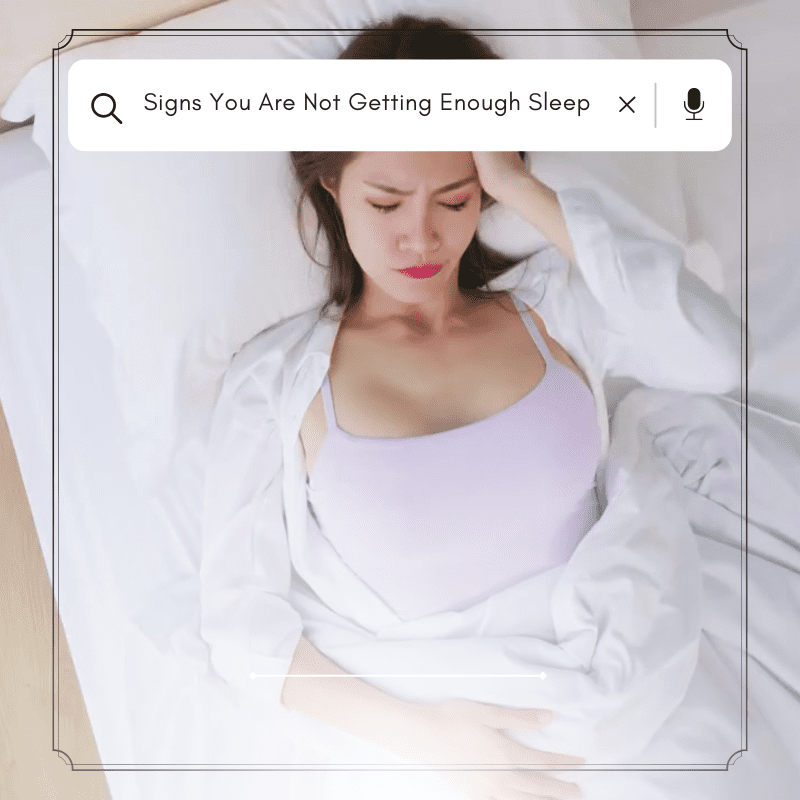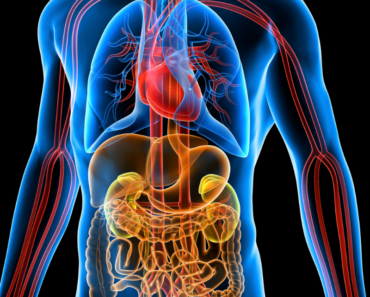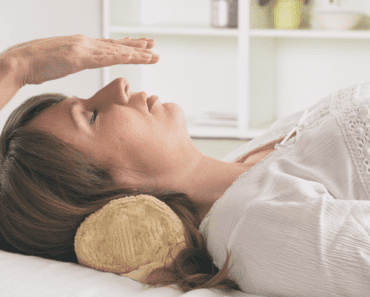Last Updated on January 3, 2025 by Subject Of Life
Are you struggling with a lack of sleep that’s leaving you feeling less productive than you know you can be? Sleep deprivation can take a serious toll, making it harder to concentrate, process information, and tackle everyday tasks. What used to feel achievable now feels overwhelming, creating frustration, missed deadlines, and a constant sense of falling behind. The stress builds, and poor sleep becomes a repeating cycle—leaving you unsure how to break free. But don’t worry; there’s hope. Keep reading to uncover practical ways to improve your sleep and regain the focus, energy, and drive you need to thrive.
10 Signs You’re Not Getting Enough Sleep

- Constant fatigue: Sleep is essential for your body to repair and recharge itself. Without sufficient sleep, your energy stores are depleted, leaving you feeling physically and mentally drained. This fatigue can persist throughout the day, affecting your productivity and overall quality of life.
- Trouble with memory: Sleep plays a vital role in memory consolidation, the process where your brain strengthens and organizes information from the day. Without adequate rest, this process is disrupted, leading to difficulty recalling details, names, or even recent occurrences.
- Difficulty concentrating: Sleep deprivation impacts your brain’s ability to process information and solve problems. This leads to reduced concentration, making it harder to complete both simple and complex tasks efficiently. Your mental sharpness diminishes, leaving you less effective in your work or studies.
- Increased clumsiness: A lack of sleep affects your motor coordination and reflexes. You might find yourself dropping objects, tripping over things, or making unintentional mistakes due to a general decrease in physical precision and awareness.
- Mood swings: Your emotional well-being is closely tied to the quality of your sleep. When you don’t get enough rest, your brain’s ability to manage emotions diminishes, causing you to experience sudden irritability, sadness, or even anger over minor issues.
- Reduced motivation: Sleep deprivation hinders your mental and emotional energy levels, making you feel less driven or enthusiastic. Activities that once excited you may seem overwhelming or uninteresting, contributing to a lack of motivation.
- Increased appetite and weight gain: Sleep influences hormones like ghrelin and leptin, which regulate hunger and feeling full. A lack of sleep throws these hormones out of balance, increasing cravings for high-calorie, sugary, and carbohydrate-rich foods, potentially leading to weight gain over time.
- Frequent illness: Your immune system relies on sleep to produce infection-fighting cells and antibodies. Without enough rest, your body struggles to fend off bacteria and viruses, making you more susceptible to common colds, infections, and other health issues.
- Impaired judgment: When sleep-deprived, the brain’s prefrontal cortex, responsible for decision-making and problem-solving, functions less effectively. This can cause poor decision-making, difficulty evaluating outcomes, and susceptibility to impulsive behavior.
- Appearance changes: Sleep is a time when your body regenerates and repairs itself. Insufficient sleep interferes with this process, leading to dark under-eye circles, dull or uneven skin tone, and a generally unhealthy physical appearance. Over time, this can age your skin prematurely and affect your self-confidence.
Understanding and addressing these signs is essential to improving your overall health and well-being. Prioritizing a good night’s sleep can significantly impact your physical, mental, and emotional state.
How To Get More Sleep According To A Sleep Expert
Dr. Michael Breus, a renowned sleep expert, suggests several strategies for improving sleep quality.
First and foremost, he emphasizes the importance of maintaining a consistent sleep schedule, even on weekends. According to him, this helps regulate your body’s internal clock and could help you fall asleep and stay asleep for the night.
Dr. Breus also recommends scrutinizing your sleep environment, ensuring it’s cool, quiet, and dark. He advises avoiding electronic devices close to bedtime as the light emitted can disrupt your sleep-wake cycle.
Finally, incorporating relaxation techniques like deep breathing, progressive muscle relaxation, or visualization can ease you into a deep, restorative sleep.
Other Ways To Improve Your Sleep
Apart from following Dr. Breus’s recommendations, here are a few other things you can do to get more sleep:
- Exercise regularly: Physical activity promotes better sleep and helps you fall asleep faster.
- Do not drink caffeinated drinks or eat heavy meals close to bedtime: Stimulants like caffeine and heavy meals can interfere with your ability to fall asleep.
- Go to be earlier: Try to go to bed earlier, even if it’s just by 15-30 minutes. This can help you get more restorative sleep.
- Limit daytime naps: While a short nap can help you feel more rested, long naps during the day can disrupt your sleep at night.
- Create an evening routine: A consistent routine before bed can signal to your body that it’s time to wind down and prepare for sleep.
- Make sleep fun: Look forward to sleep by becoming interested in your dreams – maybe even lucid dreaming. The more you look forward to sleep, the more your body will crave a good night’s sleep.
- Consult a sleep specialist: If you’re struggling with chronic insomnia, it’s best to seek help from a qualified sleep specialist who can provide personalized recommendations and treatment options.
By incorporating these strategies into your daily routine, you can improve the quality of your sleep and ultimately lead a healthier and more productive life. Remember, getting enough good-quality sleep is crucial for both physical and mental well-being. So don’t neglect this important aspect of self-care. Sweet dreams! We hope these tips will help you achieve restful nights and energized days ahead.
If you want to get better sleep, check out Dr. Michael Breus’s books.





